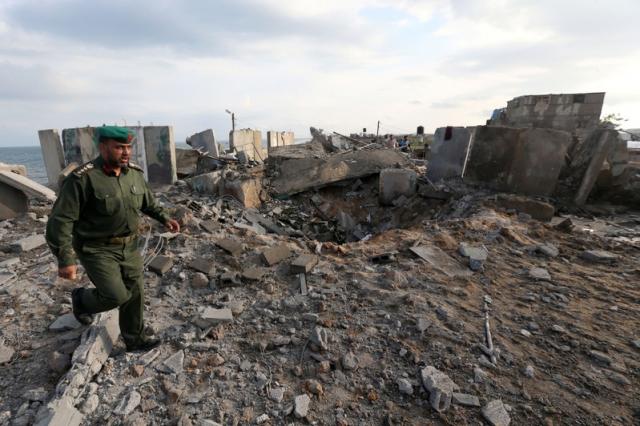
Israel-Hezbollah Strikes Cloud Lebanon’s Economy, Minister Says
Lebanon’s long-troubled economy is shrouded in uncertainty by conflict on its southern border between Israeli forces and Hezbollah militants, Lebanon’s economy minister said on Monday.
Minister of Economy and Trade Amin Salam told reporters in Abu Dhabi that Lebanon would miss an annual growth forecast of 2-4% this year as a direct result of the cross-border strikes.
“Lebanon is in a state of lot of questions now but definitely things are declining in a negative way,” he said on the sidelines of a World Trade Organization (WTO) meeting.
He said it was unclear if visitors from the Lebanese diaspora and other tourists, who he said injected about $5-7 billion into the economy last summer, would come to the country this season.
The recent winter season had seen fewer overseas visitors than expected after a strong summer season before the war, he said. The U.S., Brazil, and Australia, home to many Lebanese, are urging their citizens to reconsider travelling to Lebanon.
“We don’t know really if in the next few months we can look at a summer season that will pump back billions of dollars into the economy,” he said, uncertain if the diaspora will stay away.
Israeli forces and Lebanon’s Hezbollah have for months traded fire across Lebanon’s southern border, which the Iran-backed group says is in support of its Palestinian ally Hamas.
Hamas launched a cross-border attack on Israel from Gaza on Oct. 7 that left around 1,200 people dead, with more than 200 taken hostage, of which around 100 have been released.
In retaliation, Israel has bombed and invaded Gaza with the aim, its government says, of destroying the Iran-backed Hamas, which rules the coastal enclave of some 2.5 million people. The military operations have killed more than 29,000 Palestinians.
“Lebanon is not just affected by the war in Palestine and Gaza. Lebanon is in a state of war. We are losing our land,” Salam said.
Salam said the southern border fighting had weakened Lebanon’s exports with about $2.5 billion in agricultural land, trees and goods damaged or destroyed so far in the strikes.
He said the government was seeking international assistance to rehabilitate farmland damaged by the fighting.
“It will take years and it will take a lot of money, so definitely we will be seeking international community to aid us in rehabilitating all the areas,” Salam said.
Lebanon’s economy began to unravel in 2019 after decades of profligate state spending and corruption.


Comments are closed.